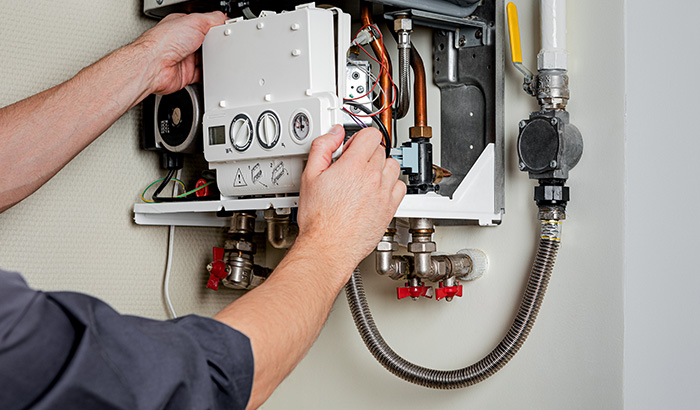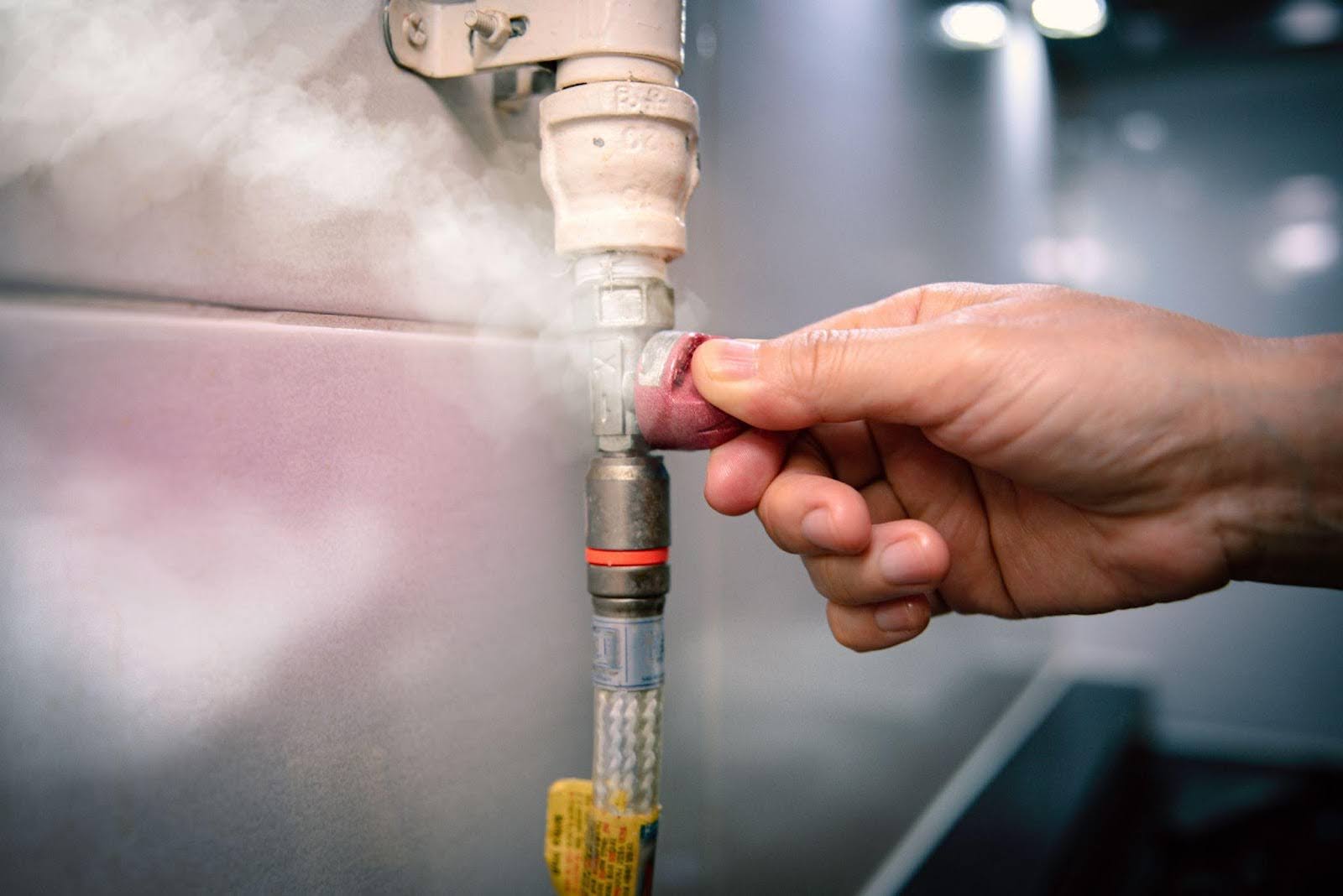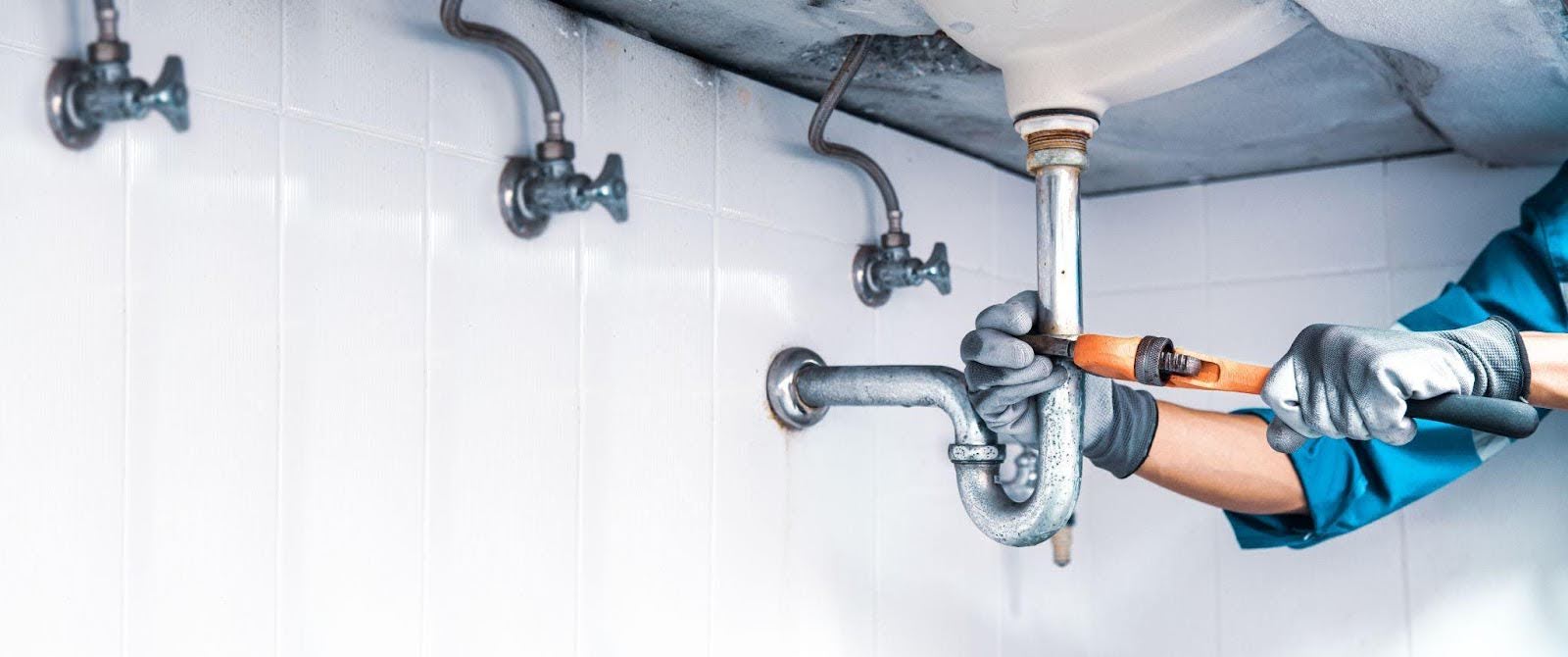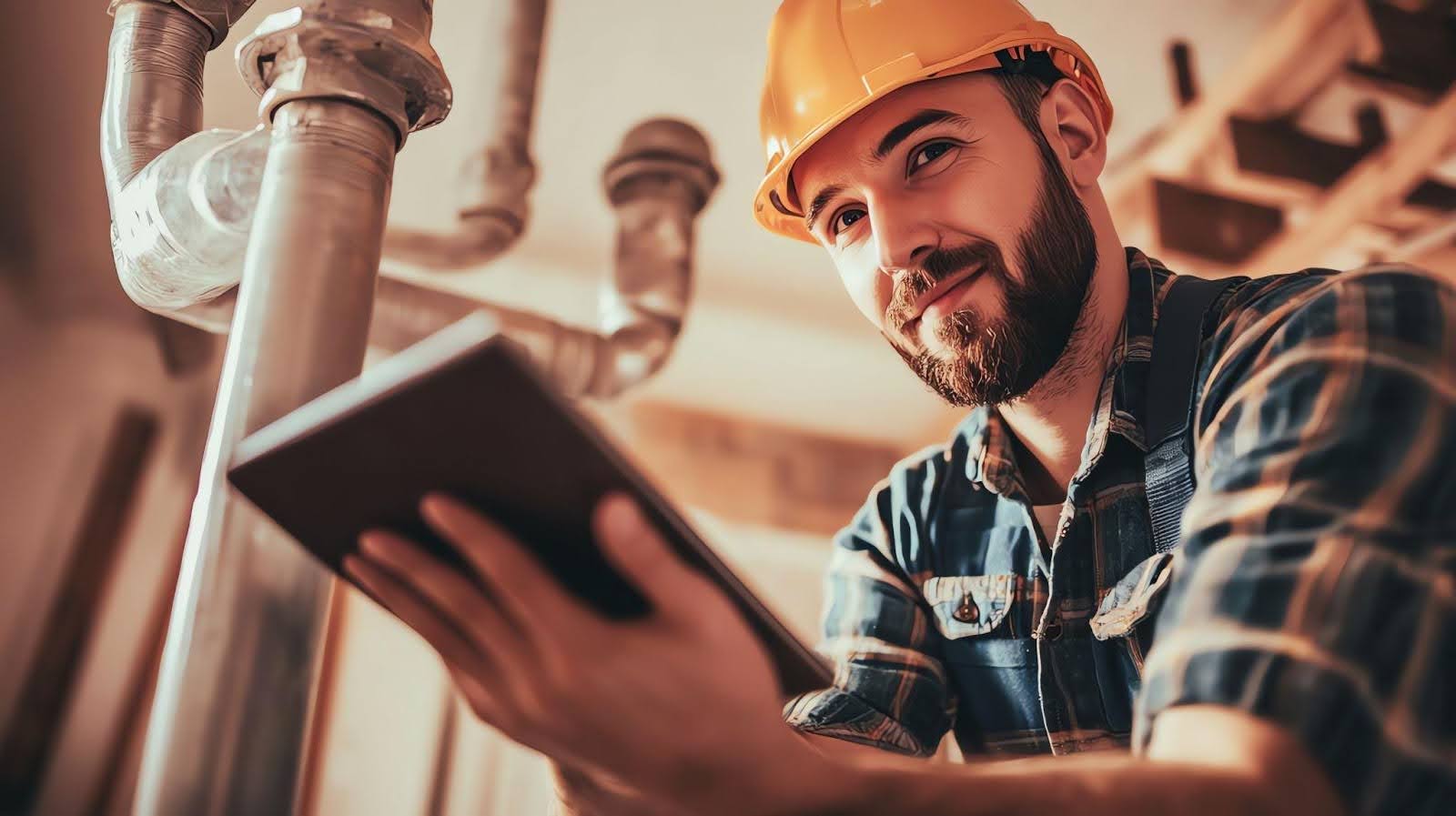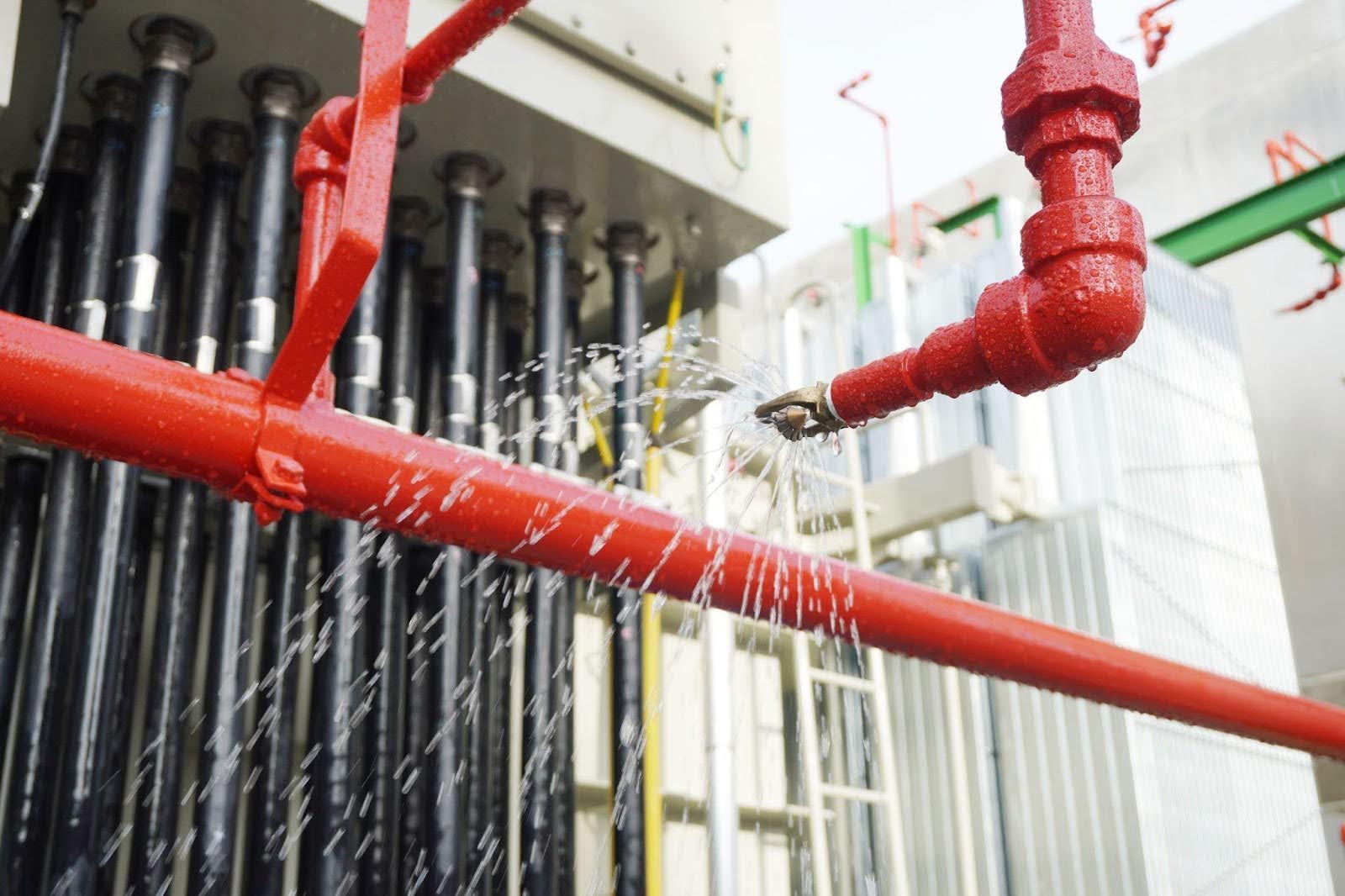Water heaters are the unsung heroes of our homes, quietly ensuring our comfort through warm showers, clean dishes, and laundered clothes. However, like all appliances, they’re not immune to wear and tear, and understanding the common repairs they may need is important.
In this blog, we’ll delve into the typical issues with your water heater, from the lack of hot water to leaks and strange noises. We’ll explore the causes behind these problems, offer practical tips for prevention, and guide you when it’s time to call the professionals.
Whether you’re a seasoned homeowner or new to home maintenance, this guide aims to equip you with the knowledge to keep your water heater running efficiently, ensuring you continue to enjoy that much-needed hot water without interruption.
Understanding your water heater
A water heater takes in cold water from your home’s supply, heats it up, and stores it until you need it for various tasks like bathing, cleaning, or cooking.
In traditional tank-based water heaters, cold water enters the tank. Either a gas burn or an electric heating element will heat the water. As the water heats up, it rises to the top of the tank, ready to flow through your home’s hot water lines to taps and appliances as needed.
The process is streamlined for on-demand use if you have a tankless water heater. These systems heat water directly without storing it. When you turn on a hot water tap, cold water flows through a pipe into the unit, where a gas burner or electric element instantly heats it, providing a continuous supply of hot water without the wait.
Understanding these basic principles helps effectively manage and troubleshoot your home’s hot water supply, ensuring you always have the comfort and convenience of hot water at your fingertips.
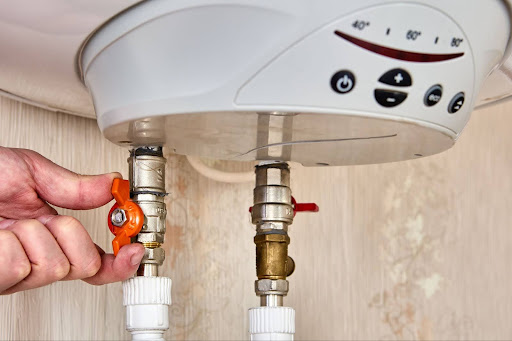
Common water heater issues
The most common water heater issues include a lack of hot water, not enough hot water, rusty water, strange noises coming from the tank, and leaks around the water heater.
No hot water
Finding out you have no hot water is particularly frustrating, especially when you’re in need of a warm shower or bath.
For gas water heaters, a common reason is that the pilot light is extinguished, which occurs due to a faulty thermocouple preventing the gas valve from opening or a malfunctioning gas valve.
Electric water heaters might face this issue due to failed heating elements responsible for warming the water. Both types of heaters rely on these critical components to heat water, and their failure means the heating process is interrupted, resulting in a lack of hot water.
Insufficient hot water
When the hot water supply seems to run out too quickly, it might be due to the water heater’s capacity being too small for your household’s needs, leading to frequent shortages.
Other potential causes include a malfunctioning thermostat that doesn’t heat the water to the desired temperature, a broken heating element in electric heaters that reduces the system’s efficiency, or sediment buildup inside the tank.
This sediment layer insulates the water from the heater’s burner or element, reducing heating efficiency and decreasing the tank’s usable volume, which limits the amount of hot water available.
Rusty water or rusty heater inlet valve
Rusty or discolored water typically indicates corrosion within the water heater tank or the pipes leading to and from it. If the heater’s inlet valve shows signs of rust, it could suggest that the internal anode rod, designed to corrode in place of the tank, has failed.
Without this sacrificial rod, the tank begins to corrode, which may lead to leaks or compromised water quality. It’s a sign that parts of your water heater may need replacement or that the entire unit’s integrity is at risk.
Strange noises from the tank
The unsettling sounds of popping, rumbling, or banging from a water heater are often due to sediment buildup at the bottom of the tank. Over time, minerals from hard water accumulate and form a layer of sediment, which can trap water underneath it.
When this water is heated, it boils and creates steam bubbles that burst through the sediment layer, causing these noises. These sounds are not only a sign of inefficiency, as the heater must work harder to heat the water, but also indicate that the tank may be under undue stress, increasing the risk of leaks or damage.
Leaks around the water heater
Discovering water around your water heater clearly indicates a leak. Various issues lead to leaks, such as loose inlet or outlet connections that may need tightening or replacing.
A faulty temperature and pressure relief valve, designed to release water if the pressure or temperature inside the tank gets too high, might also cause leaks if it malfunctions or becomes stuck. In more severe cases, a leak can signify a crack or hole in the tank itself, often a result of internal corrosion or wear over time.
Leaks lead to water wastage and potential energy loss but also cause significant damage to your home if left unaddressed, necessitating prompt and effective repair solutions.
Preventative maintenance tips
Preventative maintenance is key to extending the life of your water heater and minimizing the need for repairs. Here are some essential tips to keep your water heater in top condition:
- Regular inspections: Conduct periodic inspections of your water heater, checking for signs of wear, leaks, or corrosion. Pay special attention to connections, the pressure relief valve, and the tank.
- Flush the tank annually: Sediment buildup might significantly affect your water heater’s efficiency and longevity. Flushing the tank once a year helps remove these sediments, improving heating efficiency and preventing corrosion.
- Check the anode rod: The anode rod protects your tank from corrosion. Inspect it at least once every two years, and replace it if it’s significantly worn or corroded. This simple step has the potential to greatly extend the life of your water heater.
- Maintain the temperature setting: Keeping the temperature setting around 120-130°F ensures energy efficiency and prevents overheating, which damages the tank over time.
- Test the pressure relief valve: The pressure relief valve is a safety feature that prevents excessive pressure buildup in the tank. Test it annually by lifting the valve’s lever and letting it snap back. You should hear a gurgling sound as water releases into the drain tube. If you don’t, you might need to replace the valve.
- Insulate older units: For older water heaters, insulating the tank and the first few feet of the hot and cold water pipes reduces heat loss, saving energy and reducing the strain on your heater.
- Monitor water pressure: High water pressure strains your water heater and plumbing fixtures. Use a pressure gauge to check your home’s water pressure, and consider installing a pressure-reducing valve if it consistently exceeds 60 psi.
- Consider a water softener: If you have hard water, using a water softener prevents mineral buildup in your water heater, enhancing its efficiency and lifespan.
- Keep the area around the heater clear: Ensure adequate clearance around your water heater to facilitate ventilation and make inspections and maintenance easier.
- Schedule professional maintenance: Even with diligent personal maintenance, having a professional plumber inspect and service your water heater regularly can catch issues you might miss and provide peace of mind.
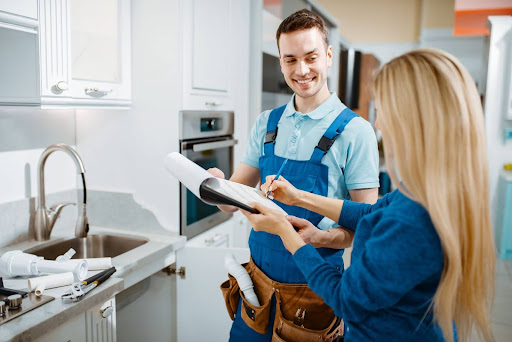
When to call a professional
While you can manage regular maintenance and some minor troubleshooting, there are situations where you’ll want to call a professional for water heater repairs. Here’s when you should consider professional intervention:
1. No hot water or inconsistent temperatures: If your water heater fails to produce hot water or if the water temperature is inconsistent, and basic troubleshooting doesn’t resolve the issue, it’s time to call a professional. These problems could be due to complex issues with the heating elements, gas supply, or electrical connections that require expert attention.
2. Visible leaks: Any visible signs of leaking around your water heater, whether from the tank, pipes, or fittings, warrant a call to a professional. Leaks often indicate serious problems that, if not promptly addressed, lead to water damage and further complications.
3. Strange noises: Unusual noises like rumbling, popping, or whining from your water heater are often symptoms of sediment buildup or other issues that could strain your system. A professional is able to effectively flush the system or recommend further action to prevent damage.
4. Water quality issues: If you notice rusty, discolored, or foul-smelling water coming from your hot water taps, it’s important to consult a professional. These issues may indicate corrosion inside the tank or problems with the anode rod that need professional assessment and repair.
5. Repeated breakdowns: If your water heater frequently requires repairs or resets, it’s a sign that there might be a deeper, underlying issue. Continuous problems are both frustrating and costly, and a professional offers a long-term solution.
6. Older units: Water heaters typically have a lifespan of 8-12 years. If your unit is old and experiencing issues, a professional will advise whether it’s more cost-effective to repair or replace it.
7. Safety concerns: DIY repairs on water heaters, especially gas models, can pose serious safety risks if handled incorrectly. A certified professional should always address issues related to gas lines, pilot lights, or electrical connections to ensure safety.
Calling a professional safe, effective repairs that adhere to local codes and manufacturer guidelines. Professionals can also provide warranties on their work, giving you peace of mind that the repairs are reliable and covered in case of future issues.
Contact Salisbury Plumbing today
Navigating the complexities of water heater repairs can be daunting, but you don’t have to face these challenges alone. At Salisbury Plumbing, we’re committed to ensuring your home remains a haven of comfort and convenience.
With our expertise in water heater repairs and maintenance, we’re here to address any issues you may encounter, from unexpected leaks to inefficiencies in heating.
Whether you’re facing urgent repairs or seeking preventative maintenance to extend the life of your water heater, our team of skilled professionals is ready to provide swift, reliable solutions tailored to your needs. Don’t let water heater troubles disrupt your daily routine.
Contact Salisbury Plumbing today, and let us take the worry out of your water heater repairs, ensuring you have access to hot water whenever you need it.
toto slot

